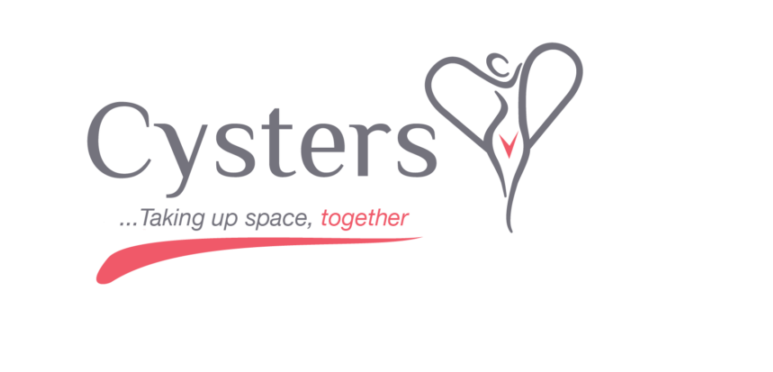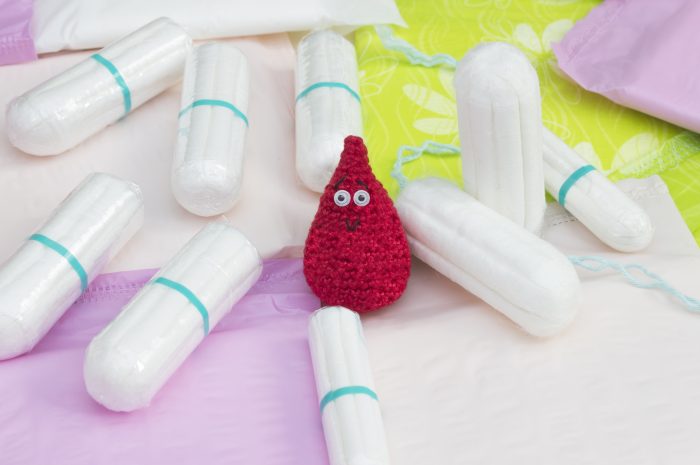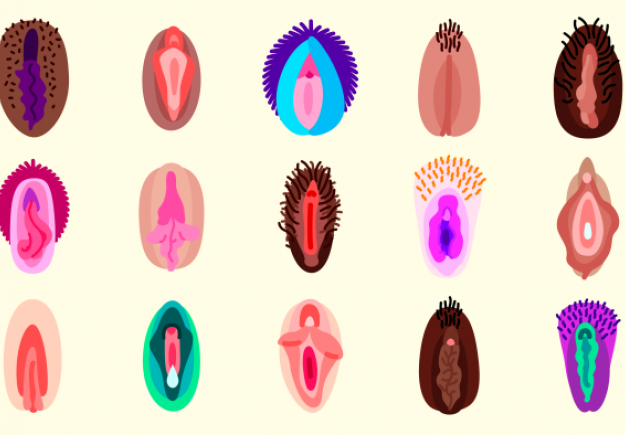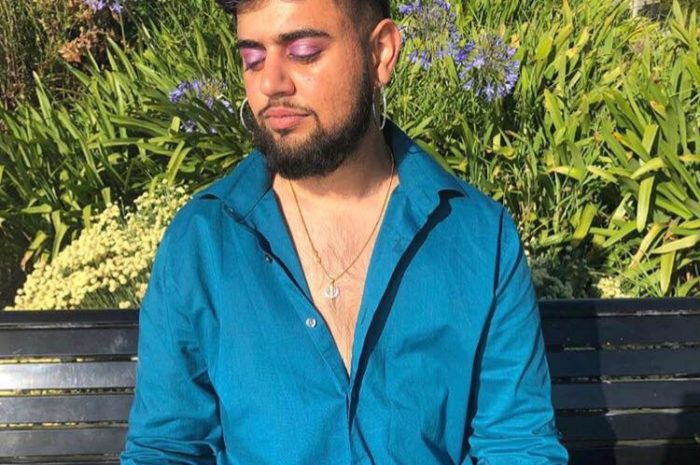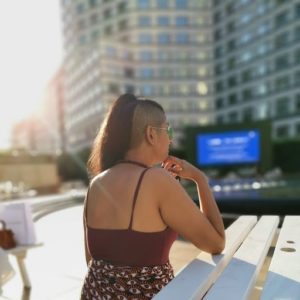
For anyone who doesn’t know me, my name is Nikita Aashi Chadha and I’m 27 years old. I’m a British national by birth, but I’m from the Indian Diaspora – desi (in my own way) and proud. I was diagnosed with endometriosis and PCOS last year in 2018, following a laparoscopy. The road to referral and diagnosis was rocky, to say the least. An 18-month saga of GP appointments, only one speculum exam, and a round of therapy to keep what was left of my sanity. I know, I’m lucky, and extremely privileged to have had a diagnosis in such a short amount of time (or so they say). The average time span for diagnosis in the UK is 7-8 years, despite affecting 10% of the female population. This is the official statistic but I don’t believe it is accurate. Not everyone who bleeds or has reproductive health conditions identifies as being a woman either.
I can’t begin to describe how isolating and exhausting living with a chronic condition is. I genuinely felt like no one understood what was happening to my body, and I found it extremely hard to connect to people on a personal level. My mental state was deteriorating and the doctors had no inclination as to what was happening. Medical research has indicated that when women visit a doctor with physical pain, they are generally treated like psychiatric patients. My own experience supports this claim – instead of focusing on my physical symptoms, I was quickly offered antidepressants and diagnosed with depression.
During the various GP visits, and trips to A&E I encountered all kinds of resistance from medical professionals. From not believing the pain was real, being accused of acting like a ‘hysterical crazy woman’ whilst asking for information on hysterectomies, or the doctor that genuinely gave me paracetamol after making me wait 4 hours to be seen. And the worst of it all, is my story is not particularly special or unique. Thousands of women within this country have experienced the same thing, but with that said, let’s not pretend that there isn’t an enforced hierarchy regarding women, privilege, representation, and access to medical care.
We live in a world of supposed equality, and the rise of diversity and inclusion – but is this ever-changing climate reflected in our institutions? Black women are 5 x more likely to die during childbirth than white women in the UK. The figure lessens if you’re an Asian woman, as you are twice as likely to die. All our systems (judiciary, educational, healthcare, political) are the result of lingering colonial thought and intention. The Western Empire claimed to hold scientific evidence that anyone non-white was degenerate and sub-human. Knowing that, is it any wonder why this prejudice still dictates policy, societal rhetoric and general attitudes? Why doctors still carry that inherent bias, that women of colour are able to feel less pain or bear more of it – if they are portrayed as less than human?
“I can’t believe this still happens!”
“How shocking!”
I can hear the waves of ‘feminists’ crying as I write this piece. It’s easy to be shocked when this is a foreign concept to you. When this isn’t something that you’ve ever dealt before. Even that disbelief is a privilege that WOC aren’t afforded. How could we be surprised given all that we know about the past? People like to suggest that there must be other factors involved besides race, like class and social status. If that were true, then why does this occur with even high-profile cases including WOC like Serena Williams and Beyonce, who both experienced issues regarding prenatal and postnatal medical care? These narratives are intentional and have been determining the discourse from the very start. WOC are the direct opposite to white women, and that’s why we aren’t held in the same esteem, subject to the same rules, or given apt representation.
Whiteness is insidious. It pervades the atmosphere; our consciousness and it hijacks the narrative. The other man-made concepts of race (guess who started playing the race card first) only exist in relation to whiteness – like blackness which operates as a binary opposite. Concepts of femininity, chastity, and virtue are tied directly into whiteness – the ideal woman is typically European, pale skin, blonde hair, blue eyes with a slim build. And if you happen to fit this brief, then great, good for you… but what about the rest of us who don’t? The ones who aren’t given the same pedestal, or respect as women? If we exist as your opposites, what is the opposite to the ideal female aesthetic… the least desirable aesthetic, an ‘othered’ experience. Even when our features make it into the spotlight, it is through various forms of cultural appropriation. Because, of course – on us, it is ‘ugly’ and ‘too much’, but within whiteness, it is ‘edgy’, ‘alternative’ and ‘cool’.
Feminists claim to support and understand the plight of all women, but you’ll find, as I have, that bringing up the above within any of those circles usually doesn’t end well. Accusations of being controversial, or trying to divide a movement – just for pointing out the nuances and the complications of identity are rife. The very concept of feminism is flawed if it not attempting to bring around the same change, and freedoms for every different type of woman, from all backgrounds, all cultures. This is where I’d prefer to promote intersectionality which recognises the multiple layers to our identities; our race, our social class, our gender, and sexuality.
I wanted to write this article in response to some of the dangerous narratives flourishing under the guise of activism, or information within the realms of reproductive health. There are some storytellers within this space that I don’t think should be given the amount of focus or attention they are receiving. Is it not enough that the assumed standard of beauty and guises of humanity have been whitewashed… without it also interjecting into this space too? Endometriosis and PCOS have ruled my life for the last two years, and it physically hurts to know that most of the women who are believed to be the true advocates of these conditions look nothing like me. They are all white, rich, beautiful, thin and influential for those very reasons. Think of Endometriosis, and close your eyes. Who do you see as the representatives of that condition? I can bet they all look the same. How do you think that affects the countless amounts of women that look completely different and yet again feel extremely underrepresented? It genuinely hurts the collective WOC psyche to discover that there is another part of our lives, where we are ONCE AGAIN excluded from the narrative, because we aren’t held in the same regard – we aren’t ‘beautiful’ enough, ‘desirable enough’, or ‘sexy enough’.
If reading this has made you feel uncomfortable, the above probably applies to you. Uncomfortable is good. You might be uncomfortable now, for a second, as you examine where you fit into the system, or where you actively feed into it (whether that be unconsciously or not). This discomfort, is what WOC carry around in ALL situations. We’d prefer if you’d stop claiming a false sisterhood, and actually created one where we can all thrive. If you’re in this space, and you have a public platform and influence – you should be using it to uplift the voices of those who don’t have the same privilege as you, one based on aesthetic, femininity and skin colour. Someone who may not have access to the same resources or have had the same opportunities that you’ve had.
I am so over this. As a brown, (upper) working-class, bisexual, cisgender woman with multiple chronic health conditions; if I can identify and examine my own privilege, well hun, so can you. We are tired of waiting for the ball to drop, for you to see the bigger picture. To see us. Stop romanticising, glamourizing and sexualising reproductive conditions. Stop hijacking the narrative to promote your own social media presence. Stop acting like the gatekeeper for these conditions. Just stop.
Cysters, and any organisation that is aimed specifically at women of colour, are needed now more than ever. We have to stick together, to remind ourselves that we are valid, we are important, and our voices do matter. When you continuously focus on just a single story, a single narrative – you are displacing and oppressing other women directly for your own benefit. You feed into the racist, misogynistic hierarchy that most of you would condemn publicly.
Some people, have asked in the past how someone can actively acknowledge, defy and utilise their privilege. That’s for you to find out for yourself and isn’t our responsibility as the marginalised majority, to determine. The onus is always put on us when you have the capability and the power to enact real change. Education is a great place to start. Learn about our struggles, our stories, our bodies. We’ve been brutalised over history. Thousands of WOC have been sterilised for experimentation with western contraceptive methods, we’re still more likely to die in medical care than you are. Use the privilege you have. Find it in your spirit to promote a narrative that isn’t like all of the others. One we haven’t seen before.
Make room for us, or we will make the room for you.
